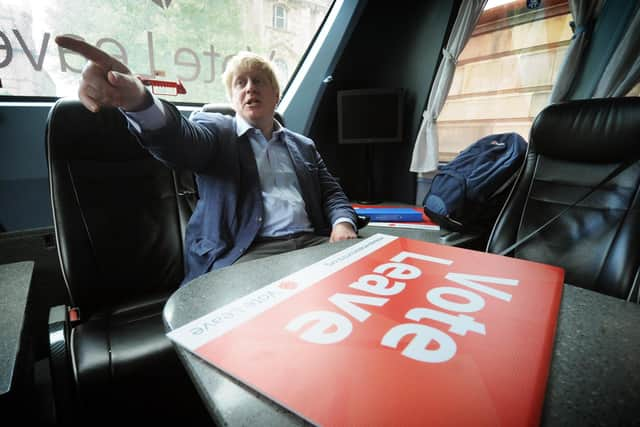Reckless chancers who backed Brexit should never be trusted to influence policy again - Will Kemp
Firstly, wealth. The Government’s independent watchdog, the Office for Budget Responsibility, recently concluded Brexit has had a “significant adverse impact” on trade equivalent to the loss of 4 per cent of Gross Domestic Product, the value of goods and services produced by a country in a given period.
The Financial Times estimates this equates to £100bn in lost output and £40bn less revenue to the Treasury a year. This means 7 per cent less spending on public services (currently £545bn a year), since the Government will not raise tax, and borrowing would worsen national debt (£2,437bn) and destabilise the economy – as Liz Truss found out last year. Secondly, trade deals. The UK has signed deals and agreements in principle with 71 countries and the EU, but most of them copy the previous terms of trade the UK had as a member of the EU and are with small countries like New Zealand, which accounts for less than 0.2 per cent of UK trade.
Advertisement
Hide AdAdvertisement
Hide AdDespite Brexiteers touting a UK-US trade deal as a key benefit of leaving the EU, there is still no sign of one nearly seven years on. Also, despite Liz Truss, then Foreign Secretary, heralding the agreement with Japan in 2020 as the first with a major trading partner that would deliver the advantages of Brexit, it has resulted in a loss of trade to the UK worth £500m a year.


Next, foreign workers. The departure of 51,000 EU workers has reduced some unemployment but also fuelled wage rises to attract staff who would not otherwise seek such work - especially in agriculture, health, construction and the south-east. This wage inflation is also compounded by price inflation, leading to interest rate increases to subdue it, thereby harming those who need to borrow.
Lastly, red tape. Companies in non-EU countries must complete lengthy forms for related shipments, so since the EU is our largest trading partner, many British firms have reported a downturn, gone bust or moved to Europe to be in the Single Market – all with losses of UK jobs and revenue.
In short, Brexit doesn’t stack up: it has saved £7bn on EU membership but resulted in a loss of £40bn, thus leaving a deficit of £33bn a year plus a sizable drag on growth.
Advertisement
Hide AdAdvertisement
Hide AdBrexiteers say things take time and sovereignty is a price worth paying. But when will the good times begin, and what was so wrong with the certainty and prosperity we took for granted under cautious, respectful EU politicians schooled in Economics?
Moreover, Brexit jeopardises stability in Northern Ireland, risks an independent Scotland, and antagonises the EU at a time when Russia threatens us all and the US will not bank-roll NATO indefinitely. It has also fractured families and friendships.
As such, Brexit was an unnecessary, ill-informed and divisive gamble based on a deluded view of Britain that conned voters and has not led to any real benefit. Indeed it has left us damaged, weaker and poorer. The reckless chancers who backed it should therefore never be trusted to influence policy or hold public office again.
Will Kemp is a writer who studied Economics at Cambridge University.